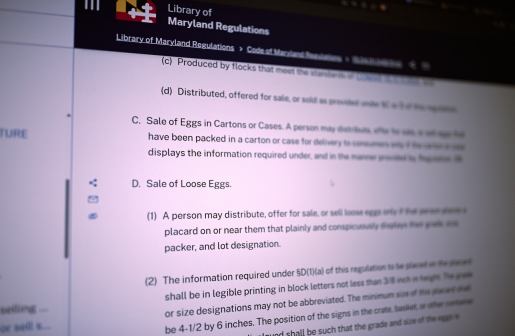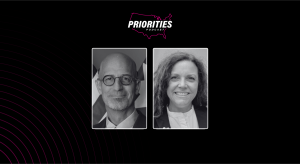Automation tools are enabling Washington D.C. to publish its laws much faster

Something happened in Washington, D.C., for the first time on Tuesday, and almost nobody noticed.
The Council of the District of Columbia launched a new website that contains the legal code for every law in the city. For anyone who doesn’t know how codification works, that may sound unremarkable, but because it usually takes the Council three to five months to turn each new law into properly formatted legal code, there have always been active laws missing from the books. That’s no longer the case.
It’s not the new website that prompted this change — it’s what’s behind it.
A collection of tools supplied by a nonprofit called the Open Law Library has turned a process that previously required several rounds of editing and the help of an outside entity — LexisNexis, in D.C.’s case — into a self-contained and automated task that now takes about a week.
The Budget Support Act, which is the legislative package for implementing the city’s annual spending plan, is among the Council’s biggest jobs. In past years, it’s taken as long as seven months to get the Budget Support Act added to the code. This year, said David Greisen, CEO and founder of the Open Law Library, it took nine days.
“We are now down to the point where a single attorney, the codification counsel, is spending maybe a quarter of his time, maybe a little bit more, to codify all of those things within weeks of them becoming effective,” Greisen said.
The Open Law Library’s tools use artificial intelligence and natural language processing that give the codification counsel accurate information as he’s working. It starts with a Microsoft Word plug-in that helps catch common mistakes and ensures that the document being written conforms to the city’s code style guide.
Because the document that is produced conforms to formatting standards, Greisen said, it is then easy to convert it into XML, a common markup language that is designed to be easily read by both humans and machines.
Next, the XML is fed into an editing tool akin to an integrated development environment (IDE) used by computer programmers, which contains tools designed to streamline the development process and supply the user with fast and automatic access to information about the elements being referenced in the text. Instead of needing to manually look something up each time the user has a question or some doubt, a feature similar to auto-complete brings up the information automatically.
“It’s my understanding the most codifiers are codifying at like one to two pages an hour and probably even less than that when you’re counting all the proofreading that happens. There would be three rounds of editing in this previous process,” Greisen said.
In D.C., Greisen said they’re processing at almost 20 pages an hour and they haven’t yet found a single error in the code.
“The most that they found is where in the original text, there may have been a space between the last word and a period,” he said, and added that they’re looking into a way to account for that kind of typo.
D.C. passes about 250 code-changing ordinances each year and about another 500 ordinances that require annotations to the code. It’s difficult to quantify how much money and time this change represents for the city, but Greisen said the Council no longer uses LexisNexis for its digital codification process and city lawyers are taking many fewer phone calls from government employees who need to know what the laws are but can’t find them on the books.
Councilmember David Grosso, who pushed for the technology’s adoption, told StateScoop in an email that he believes this is a “much better tool” for drafting legislation and that he believes it puts the Council at the forefront of U.S. legislative bodies.
The Council began talking to the Open Law Library in 2014 and Greisen said it was in August 2015 that they began working on the pilot “in earnest.” The project was in beta until this month and now that the system is in place, Greisen said he plans to work with other jurisdictions to replicate what D.C. has done.
Open Law Library also wants to pursue partnerships with legal aid organizations to add yet another wrinkle to the project. While the work so far has improved access to legal code for those who know how to read it, most people don’t understand legal code well.
The next step, Greisen said, is to create technology that will allow explanatory documents to be linked with the code and somehow synchronized on the backend so the laws will be available to everyone, not just lawyers.
“When you look at the most visited sections of the code, they’re things like ‘what are child support obligations’ or ‘what is the definition of trespass,’ things where you look at it and this is someone who’s probably in trouble and trying to figure this out,” Greisen said. “If we can provide assistance at the point they need that assistance to really up-to-date high-quality secondary sources, that’s when you really start impacting accessibility.”






